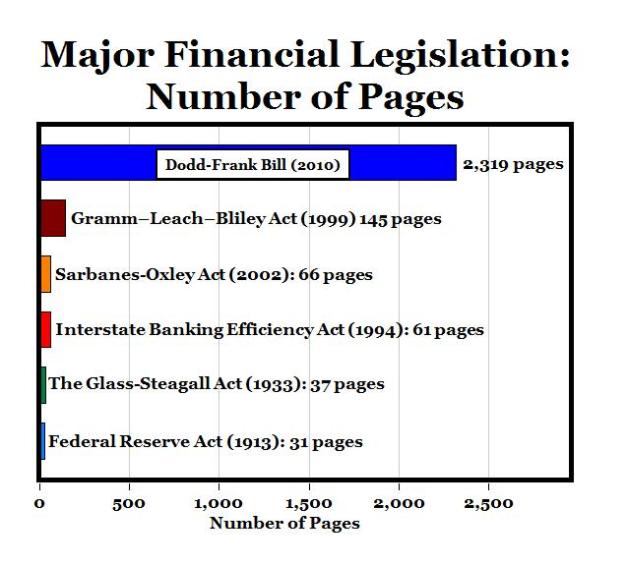business government society 2
Latest Post
Gauging the True Effects of Dodd-Frank
Recently the Obama administration and our nation’s politicians signed into office a piece of legislation known as the Dodd-Frank Wall Street Reform and Consumer Protection Act. This act was installed as a response to the catastrophic financial crisis of 2008. While the act is well intentioned seemingly addresses the core failures of the crisis, it is overbearing and far too complex. Specifically, the Dodd-Frank act, with its numerous policies and regulations, will seek to fundamentally undermine small and community banks that have had nothing to do with the financial crisis. Congress must take action to ensure that this does not take place and our community banks, and furthermore local economies, thrive. In its current state, Dodd-Frank does not sufficiently and accurately address the large and complex financial institutions that led to the largest economic downfall since the Great Depression of the 1930s. Moreover, its drastic regulations will seek to exponentially raise operating costs and decrease revenues through increased compliance. Plagued with the new compliance requires much cost that is tough for these small banks to absorb as they do not have access to capital like the larger banks do.
Congress must seek to stop the implementation of the Durbin amemdment which is a new piece of regulation that will decrease the amount of interchange fees charged by banks, thereby drastically decreasing interchange revenue (a significant portion of small bank revenue). Congress must put a stop to this amendment being implemented. Additionally, the large amount of regulation flooding into the banking industry will seek to greatly hurt our nation’s financial institutions. More compliance translates into more cost for banks. Small community banks do not have the access to capital that large banks do and therefore struggle with hiring compliance staff to comply with the influx of new rules and regulations. The effect is a chain reaction. As more regulation floods into the industry, banks must comply which translates into cost. This cost is furthermore transferred over to the consumer as fees must be raised in order for banks to continue to be profitable. As banks spend more capital on compliance, less capital is available to lend and offer financial services to their local customers. As a result, small businesses and communities suffer from stagnant economic growth. Our nation’s small community banks are vital to local economic growth and furthermore the growth of our economy as a whole. Congress MUST take action before its too late.
Featured Posts
Here are the blog council’s awards for the posts on a book you found in the library:
Best Post: Beth O’Brien
Most Timely: Derek Craig
Protestant Work Ethic (Research Driven): Lauren McGuiggan and Joey Martin
Congratulations to the above bloggers!
-Blog Council
There is a lot wrong with the world. But there is nothing wrong with the world that cannot be fixed by what is right with the world (thanks Bill Clinton for idea). I think the same mix is inside each of us. Hopefully, your education and this class have given you the means and tools to find what is fixable and how to start fixing.
In that spirit, your last post is to think of a “60 second idea to improve the world.” This is shamelessly borrowed form a BBC podcast I heard.
Please read your post and time it to sixty seconds! These should be short, powerful, and convincing.
There will be a small prize for the winning idea as determined by the post’s rating with my opinion being the final tie-breaker. You can see my last semester’s ideas on their blog.
